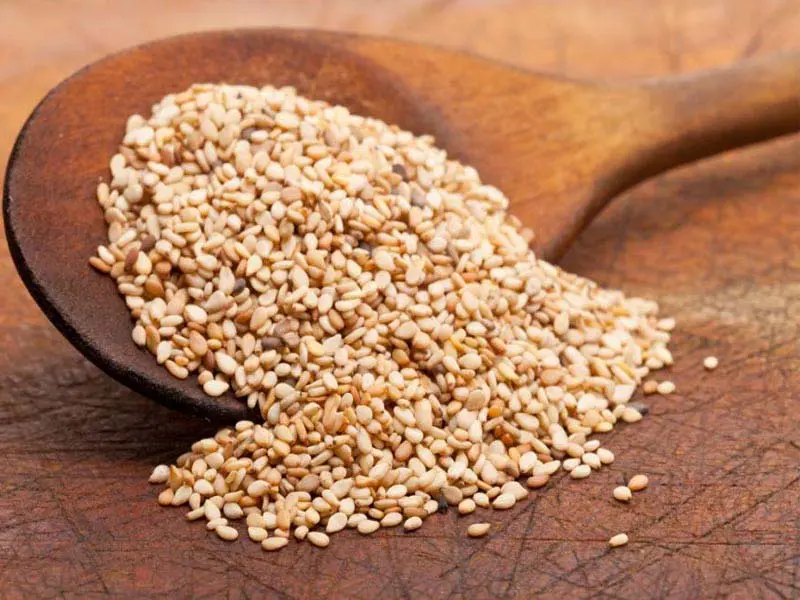- 8
- Jul
- 0

The Benefits and Considerations of Consuming Sesame Seeds During Pregnancy
Nutritional Value of Sesame Seeds
Pregnancy is a Essential phase in a woman’s life, requiring a balanced diet to ensure the health and safety of both the mother and the fetus. Sesame seeds, packed with numerous nutrients, can be beneficial for pregnant women. However, it’s essential to be aware of their potential side effects and consult with healthcare professionals before incorporating them into the diet.
Source of Calcium
Calcium is vital during pregnancy and postpartum, especially for breastfeeding mothers, as it helps in the proper production of breast milk. A mother needs approximately 1000 to 1300 mg of calcium daily. Sesame seeds are a rich source of calcium and can help meet this requirement, thereby supporting bone health and overall wellness.
High in Protein
According to the Indian Council of Medical Research (ICMR), women require an increased intake of protein during and after pregnancy. Before breastfeeding, about 13.6 grams of protein per day is necessary, increasing by an additional 6 grams during the subsequent six months. Sesame seeds, containing approximately 17.7 grams of protein per 100 grams, can help fulfill this requirement, preventing protein deficiency.
Rich in Fiber and Minerals
Constipation is a common issue during pregnancy, and a fiber-rich diet is Essential to mitigate this problem. Sesame seeds are an excellent source of fiber, with 10 grams containing about 12 grams of fiber, which can enhance digestive health. Additionally, they are rich in essential minerals such as zinc, manganese, and copper, which are important for both maternal and fetal health.
Blood Pressure Regulation
High blood pressure and blood sugar levels are common concerns during pregnancy. Sesame seeds contain lignans, compounds that can help reduce cholesterol levels and blood pressure. Regular consumption of sesame seeds may contribute to maintaining healthy blood pressure levels.
Managing Common Pregnancy Concerns
Preventing Nutrient Deficiencies
Pregnancy increases the need for various nutrients, and deficiencies can impact both the mother and the baby. Ensuring a diet rich in essential vitamins and minerals is Essential for a healthy pregnancy.
Addressing Morning Sickness
Many pregnant women experience morning sickness, especially in the first trimester. Eating small, frequent meals and staying hydrated can help manage nausea and vomiting.
Ensuring Proper Hydration
Staying well-hydrated is essential during pregnancy to support increased blood volume and amniotic fluid production. Drinking plenty of water and consuming hydrating foods can help maintain optimal hydration levels.
Sesame seeds during pregnancy
Sesame seeds can be a valuable addition to the diet during pregnancy due to their rich nutrient profile, including calcium, protein, fiber, and essential minerals. However, moderation and professional consultation are key to ensuring their safe consumption. Proper dietary management can address common pregnancy concerns and promote a healthy pregnancy.
Conclusion: Always consult with your doctor or a healthcare professional before making significant dietary changes for pregnancy. They can provide personalized guidance based on your medical history and current health status.
Note – If you have any health-related concerns, please call us at +91-9058577992 to receive free consultation from our experienced doctors. Thank you.

Leave a Comment
You must be logged in to post a comment.